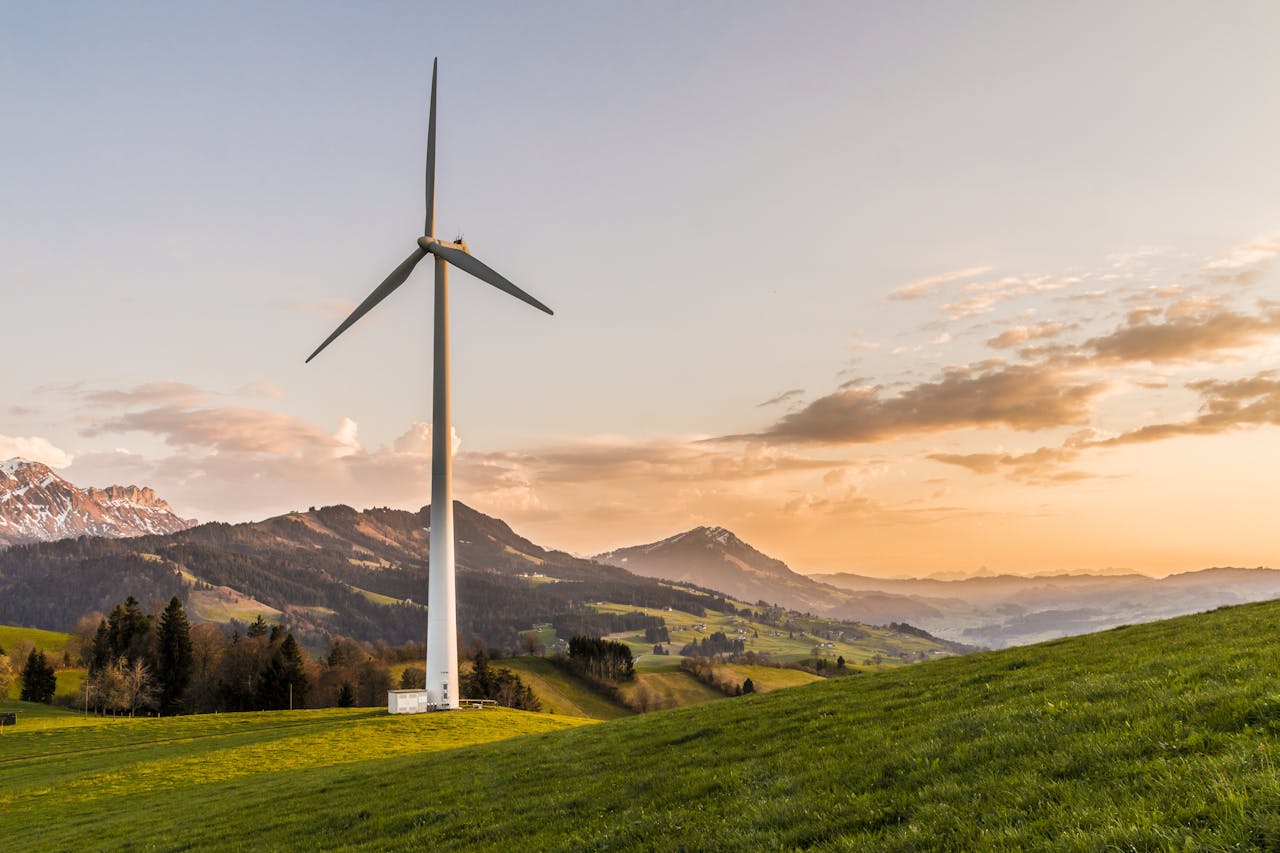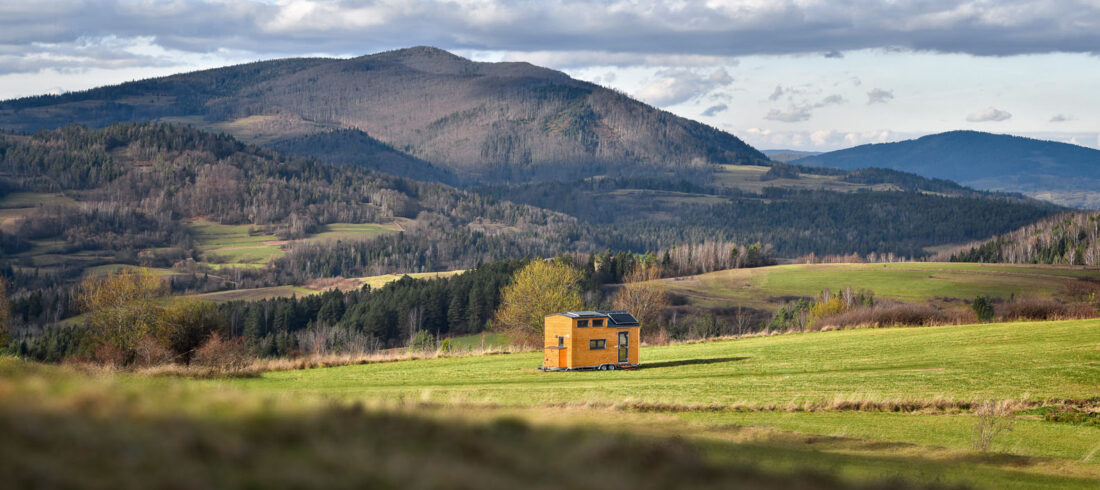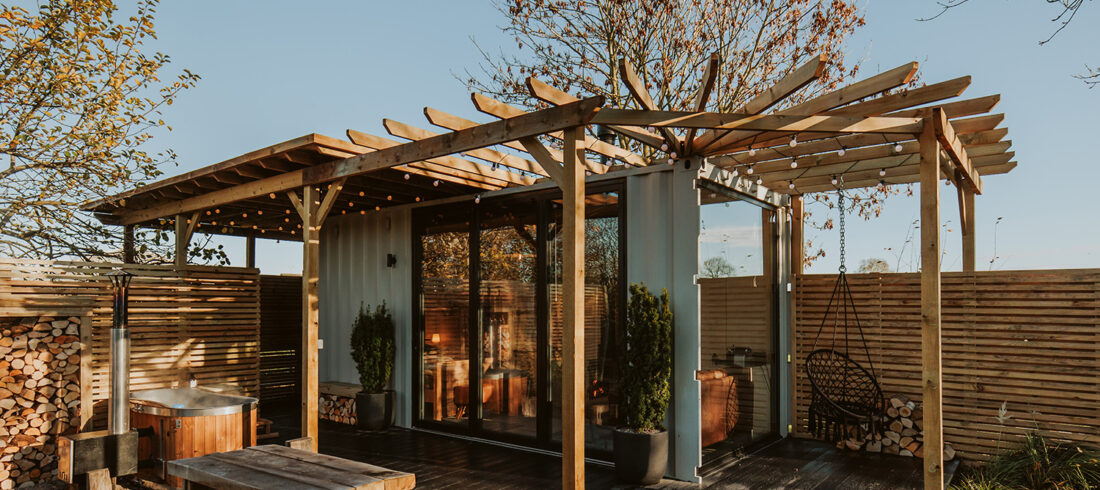For most people, the closest thing to escapism is a trip to the cinema to watch the newest blockbuster from the hottest up-and-coming director and the shiniest stars. However, for an increasing number of people, escaping from the day-to-day grind by way of sitting in a darkened room for a couple of hours just isn’t enough.
In today’s fast paced world, the allure of off-grid living has never been more enticing. An environmentally-conscious existence represents a departure from the norms of modern society and an opportunity to embrace self-sufficiency, environmental stewardship, and reconnect with nature.
It’s a lifestyle choice that challenges the conventional notions of consumption and dependence that we have all grown up with. So why not shed yourself of the years of societal baggage you’ve built up and step outside with a new perspective?
Why not opt for more renewable and innovative measures that are ideally placed to meet your needs? Join us as we explore how to live sustainably off the grid. Discover what the lifestyle looks like in practice and gleam insights into what you can do to make the journey that bit easier.
What Does Sustainable Off The Grid Living Look Like?
Sustainable off-the-grid living embodies a lifestyle that puts great focus on self-sufficiency, environmental stewardship, as well as greater harmony with the natural world. It involves making efforts to disconnect from centralised utilities, relying instead on a combination of renewable resources and innovative and creative solutions to meet one’s needs.
To properly answer the question of how to live sustainably off the grid, it is first crucial to truly understand what the lifestyle entails. Here’s a deep dive into exactly what sustainable off the grid living looks like in reality:
Increased Energy Independence
Off grid life requires much greater emphasis on generating your own electricity from renewable sources and, as the name suggests, getting off the grid. The most common, accessible, and therefore popular renewable sources are:
- Solar power
- Wind power
- Hydro-electric power
By producing their own energy, off grid adopters are able to significantly reduce their reliance on fossil fuels and contribute to a clearer and more sustainable environment and future.
Off-grid living emphasises generating electricity from renewable sources like solar, wind, or hydro power. Solar panels, in particular, are a popular choice for harnessing the abundant energy of the sun. By producing their own power, off-gridders reduce reliance on fossil fuels and contribute to a cleaner, more sustainable energy future.
Water Conservation
Growing up connected at the hip to the central grid will mean that, for the most part, we never really think about where resources come from. This includes our water. When was the last time you really considered what happened when you turn your tap and a steady flow of crystal clear water flows out?
Off grid homes will often utilise rainwater harvesting processes. This entails the hygienic collection and storage of rainwater to be used for a number of key purposes, including:
- Drinking water
- Water for cooking
- Irrigation
- Washing
- Laundry
- Toilets
To further increase the self-sufficiency of your off grid home, there are measures, such as greywater recycling and filtration systems, you can employ to reuse wastewater from sinks, showers, laundry, toilet flushing, etc. These practices can greatly minimise your water consumption and help you to reduce the strain on local water supplies.
Food Produced Organically
Sustainable off the grid living has a number of key benefits. However, one of the most common we hear about is the ability to live off the fruits of the natural land. Successfully living off grid will often involve growing your own food and utilising organic farming methods to do so.
Considerations to this end include ways you can promote biodiversity, soil health, and water efficiency. Composting is also often utilised as a means of recycling organic waste so you can go on to make productive use out of it.
Minimise Where Possible
One of the primary principles of getting away from the rat race and living off-the-grid is a promotion of a more simple, minimalist, and clutter-free life. Off grid living prioritises a life of quality over a life of quantity. You should make strides to consume meaningfully and not excessively.
Reconnect With the Natural World
One of the beauties of the off grid lifestyle is that it helps individuals to reconnect with the natural world and experience a deeper sense of connection with nature.
By eschewing the traditional norms of modern life in favour of getting away from it all in a modular home, you strip yourself of the unnecessary, making you better able to prioritise more outdoor activities. You can nurture your relationship with the environment, as well as your relationship with yourself.
Off Grid Green Living 101
Living off grid is much more than just transferring your city life into a tiny home or converted shipping container on a plot of land in the countryside. Embarking on the journey into off grid green living will require careful planning, resourcefulness, and a full-blooded commitment to sustainable practices at all times.
Are you wondering how to live sustainably off the grid? Here’s a beginner’s guide to get you started on the journey:
- Assess Your Needs: The first step towards sustainable off grid living should be to evaluate your total energy, water, and food needs. This is important to determine the infrastructure you are likely to need in order to support your lifestyle off the grid.
- Plan and Plan Again: Preparation is key when looking to start a new life. Before making any commitments, consider factors like your preferred climate, the availability of land where you want to live, as well as local regulations that could restrict a potential off-grid setup.
- Invest in Renewable Energy: Unless you intend to freeze for the duration of your time off grid, installing some form of electricity (see above) is imperative. Additionally, opting for energy-efficient appliances and LED lighting as a means to minimise your electricity consumption and maximise the potential of your energy source can be a great step to consider.
- Consider Water Supply: It’s important that you set up a way of collecting rainwater. This is usually done with an assortment of gutters, downspouts, storage tanks, etc. Research filtration and purification methods if you want to make sure that the water you’re consuming is safe.
- Can You Grow Your Own Food?: Having your own patch to grow vegetables, fruit, and rear livestock will be key to your new sustainable life. You’ll likely want to work out ways to create self-sustaining food systems that will require as minimal input from you as possible.
- Reduce, Reuse, Recycle: Why not try to embrace the zero-waste lifestyle before you commit to your new life and get a head start? Minimise your consumption, reuse materials, and recycle waste wherever possible and prepare for the life you want to live now, not tomorrow.
- Select an Eco-Friendly Structure: There’s little use committing your life and savings to living sustainably off the grid before selecting a home that’s bad for the environment. A Live Off Grid converted shipping container home is built using sustainable principles throughout.
- Embrace Community and Collaboration: The off grid lifestyle is attracting an ever-growing community of like-minded individuals, all looking to offer ideas, resources, and support to those who need it. You may be able to take part in workshops, projects, etc. within your community to help foster a collaborative feeling.
Working out how to live sustainably off the grid is an important part of the process. It is crucial to understand how the process will work for you and your desired lifestyle. Getting to grips with sustainable off grid living is a journey of discovery, experimentation, and learning.
By adopting environmentally-conscious practices, you can embrace self-sufficiency and cultivate a deeper connection with nature.
Start Your New Life Off The Grid Today With Live Off Grid
Ultimately, the question of how to live sustainably off the grid will depend on you — the lifestyle can, for the most part, be tailored to you and your preference. This flexibility is a pathway to a more harmonious and fulfilling existence, where your day-to-day life can go from serving others who might not do the same for you, to serving yourself and the world around you.
Prioritising self-sufficiency and environmental responsibility is a way of life that is sure to change the way you see the planet. The more people that embrace these principles and ask how to live sustainably off the grid, the closer we can work towards a future where humanity is no longer at odds with ecological health.
So, whether you’re considering a new life off the grid or are seeking inspiration for more sustainable practices, remember that, while it may seem intimidating, the journey begins with a single step. All you need to do is commit to a more intentional, connected, and eco-conscious way of living.
Find out more about how a Live Off Grid converted shipping container is the ideal accompaniment to your new sustainable life away from it all. Our expert designers strive to make our containers as environmentally friendly as possible, without scrimping the luxury and comfort that can make the space feel like a home. Contact us today to find out more.









